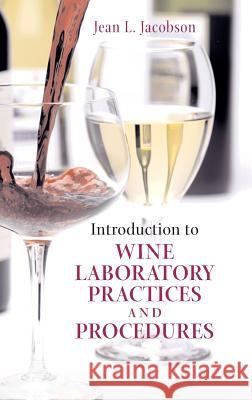Introduction to Wine Laboratory Practices and Procedures » książka
Introduction to Wine Laboratory Practices and Procedures
ISBN-13: 9780387243771 / Angielski / Twarda / 2005 / 396 str.
In the beginning, for me, winemaking was a romanticized notion of putting grape juice into a barrel and allowing time to perform its magic as you sat on the veranda watching the sunset on a Tuscan landscape. For some small wineries, this notion might still ring true, but for the majority of wineries commercially producing quality wines, the reality of winemaking is far more complex. The persistent evolution of the wine industry demands continual advan- ments in technology and education to sustain and promote quality winem- ing. The sciences of viticulture, enology, and wine chemistry are becoming more intricate and sophisticated each year. Wine laboratories have become an integral part of the winemaking process, necessitating a knowledgeable staff possessing a multitude of skills. Science incorporates the tools that new-age winemakers are utilizing to produce some of the best wines ever made in this multibillion dollar trade. A novice to enology and wine chemistry can find these subjects daunting and intimidating. Whether you are a home winemaker, a new winemaker, an enology student, or a beginning-to-intermediate laboratory technician, p- ting all the pieces together can take time. As a winemaker friend once told me, winemaking is a moving target. Introduction to Wine Laboratory Practices and Procedures was written for the multitude of people entering the wine industry and those that wish to learn about wine chemistry and enology."











